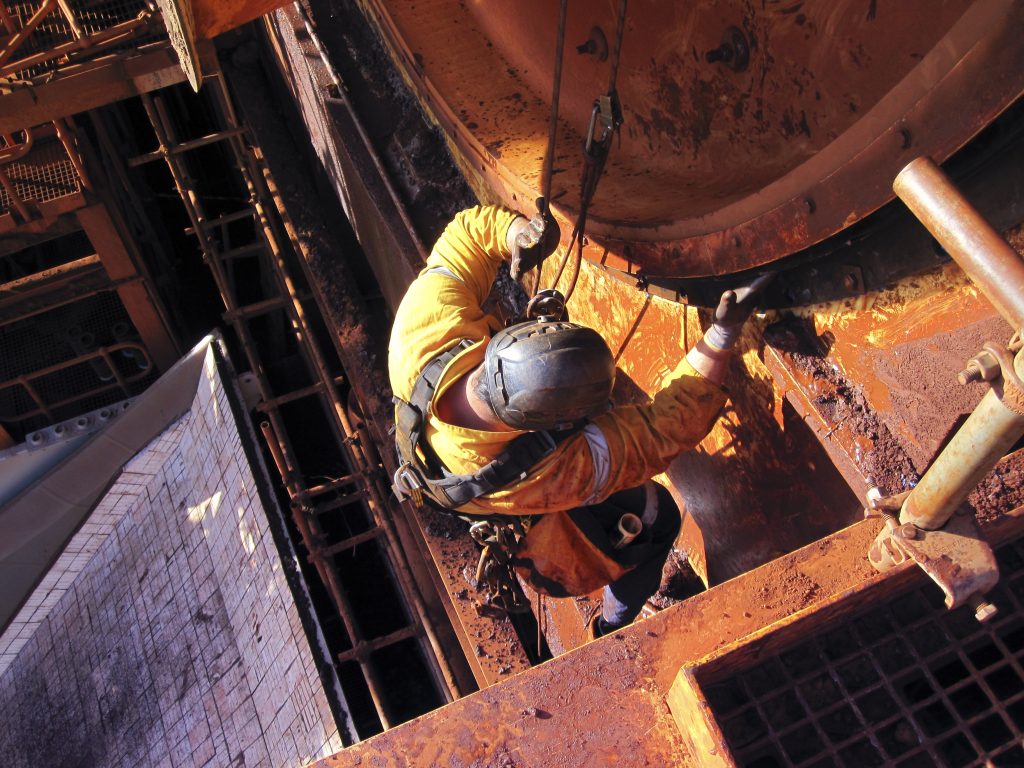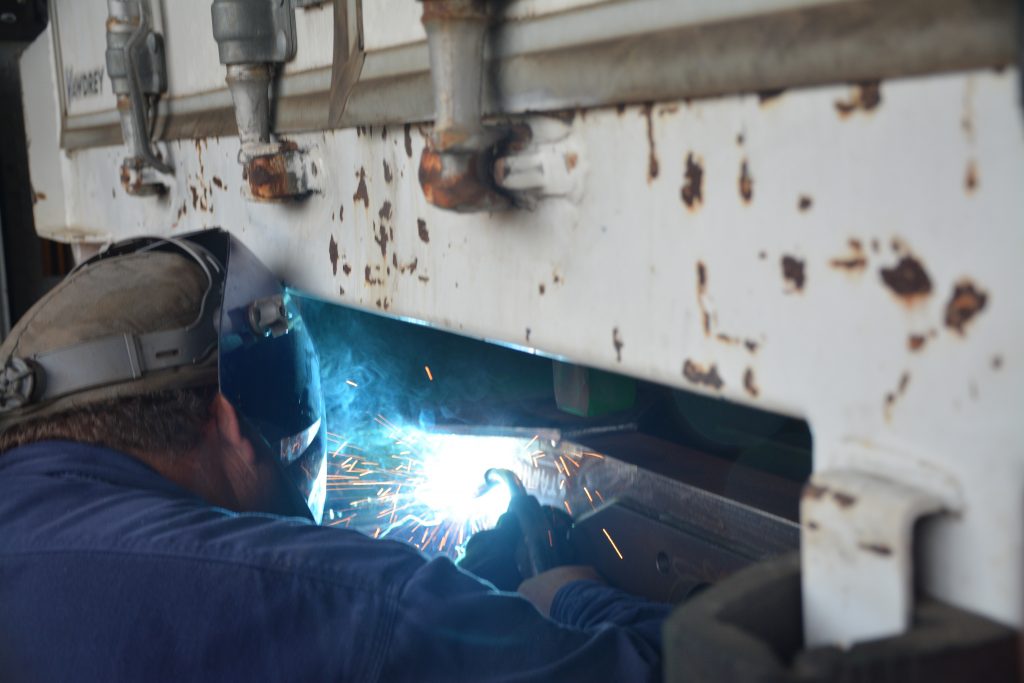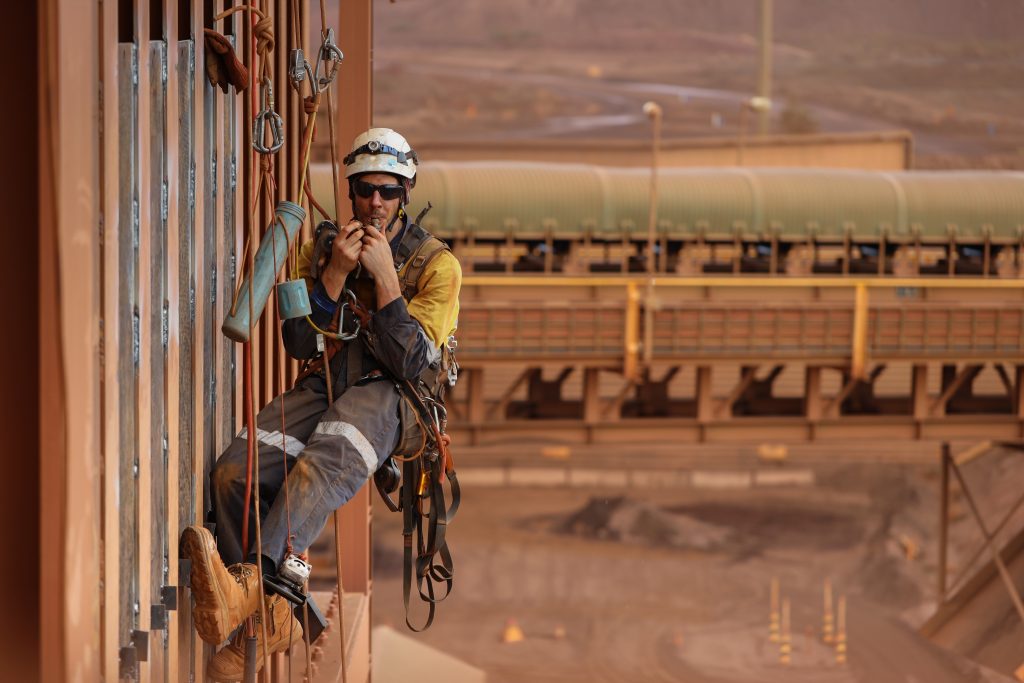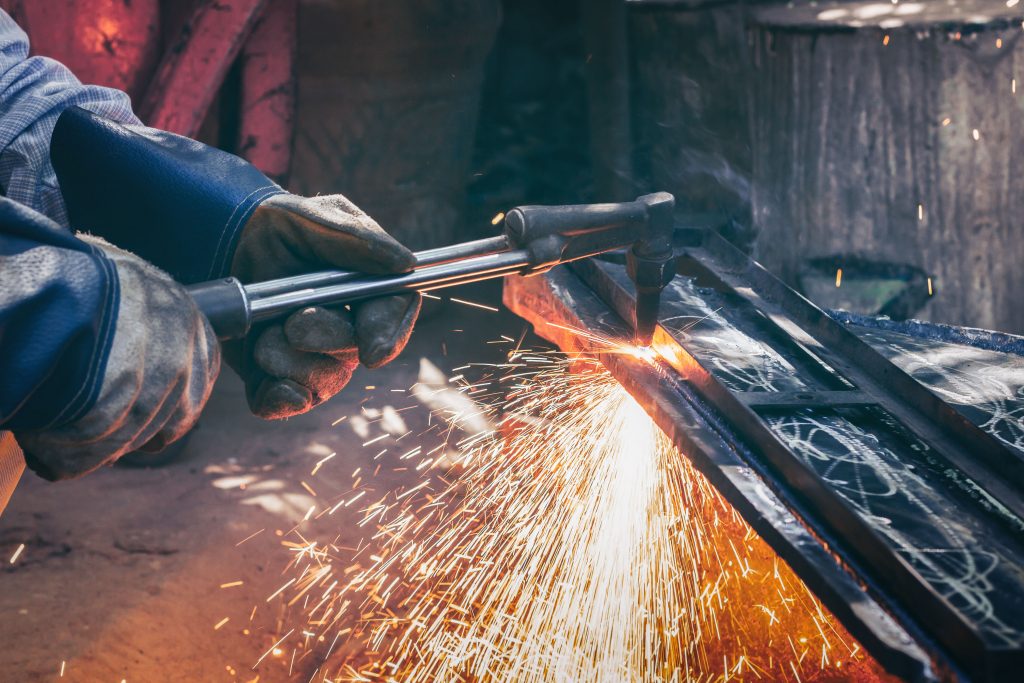Contents
 Boilermakers install and maintain boiler systems. Their work is physically demanding, requiring protective gear and dangerous work. Boilermakers may work in cramped spaces, outdoors during extreme weather, or at great heights. But while the work is demanding, the pay is rewarding, especially for a career that doesn’t require much education. Below, you’ll find how to become a boilermaker, what degree—if any—is required for this occupation, and other valuable information like earnings potential and job outlook. If you’re considering becoming a boilermaker, it pays to be informed.
Boilermakers install and maintain boiler systems. Their work is physically demanding, requiring protective gear and dangerous work. Boilermakers may work in cramped spaces, outdoors during extreme weather, or at great heights. But while the work is demanding, the pay is rewarding, especially for a career that doesn’t require much education. Below, you’ll find how to become a boilermaker, what degree—if any—is required for this occupation, and other valuable information like earnings potential and job outlook. If you’re considering becoming a boilermaker, it pays to be informed.
How Do You Become a Boilermaker?
You don’t need a boilermaker degree to work in this occupation. In fact, a high-school diploma or equivalent fulfills the required education for boilermakers. Work as a boilermaker does require extensive training, though. Boilermakers learn the ins and outs of the job through an apprenticeship program. Apprenticeships last about four years, during which boilermakers learn how to use equipment and tools on the job. During apprenticeships, boilermakers also learn about the following:- Blueprint reading and sketching
- Installation techniques
- Metals
- Safety practices
What Degree Does a Boilermaker Need?
As stated above, you don’t really need a college degree to work as a boilermaker. But if you want to go to school, it won’t hurt. There’s nothing wrong with gaining education for boilermakers’ jobs. In fact, it might help set you apart from your competition when applying for an opening. So, if you’re planning to go back to school, what degree do you need to be a boilermaker? Earning an associate degree is the most common education route for individuals wanting to become a boilermaker with a college degree. The best associate degrees to earn include: Associate in Building and Construction Associate degrees in building and construction may include construction management, construction technology, or another closely related discipline. These programs offer students real-world experiences in building construction techniques. Fluency in the use of building materials, construction tools, and safety techniques is provided. Associate in Engineering A general associate in engineering degree is designed to prepare students to transfer to a four-year engineering program, but if you want to pursue work as a boilermaker right after earning your degree, employers will value your education. In an associate in engineering program, you’ll take courses like engineering dynamics, introduction to engineering, and logic system design. Some schools even offer concentrations or more specific engineering degrees, such as the associate in civil engineering or mechanical engineering. This is the perfect boilermaker degree. Associate in Welding Technology A two-year degree in welding technology can prepare students for entry-level employment in the welding industry. Students acquire skills in basic material science, blueprint design, metallurgy, metal transfer, and well-joint design. These skills and education for boilermakers are ideal for the work. In fact, many of these same skills are learned through a boilermaker apprenticeship program.
How Long Does It Take to Become a Boilermaker?
Since there is no boilermaker schooling that is required for the job, the time it takes to become a boilermaker comes down to the training required by an employer. Most employers require boilermakers to complete an apprenticeship as part of their training program. Training takes about four years to complete. When a boilermaker finishes their apprenticeship, they become a journey-level worker. Aspiring boilermakers can shorten the length of time it takes to complete an apprenticeship if they have experience or education. Applicants with welding experience or other related experience, such as that obtained through the military, may qualify to shorten their apprenticeship.How to Become a Boilermaker Without a Degree
So, what degree do you need to be a boilermaker? The answer is simple. You don’t need a degree to become a boilermaker, but you do need training. The qualifications for boilermakers include a high-school diploma or equivalent, training through an apprenticeship, and the physical stamina to endure the demands of the job. Becoming a boilermaker without a college degree is the most common path to this career.Certifications or Licenses for Becoming a Boilermaker
Now that you know how to become a boilermaker, it’s important to explore the certification or licensing required by certain states. Since there is no boilermaker schooling requirement, some states demand that boilermakers have a license. To receive licensure, boilermakers must qualify to take an examination by showcasing work experience hours. They must then pass an exam. Some employers prefer to hire boilermakers who hold certification from the National Center for Construction Education and Research (NCCER). Also, some employers like to see candidates with welding certificates, although these are not required.Beyond Boilermaker Schooling – Training to Become a Boilermaker
Boilermakers learn their trade through a four-year training program called an apprenticeship. During the apprenticeship program, boilermakers learn how to operate tools and equipment commonly used on the job. They also learn safety protocol, how to read blueprints and sketches, and particular installation techniques. The training program is extensive, but it is critical to becoming a journey-level worker. In addition to completing the four-year training program, boilermakers must possess other important qualities that are not always taught in a classroom or acquired through an apprenticeship. Instead, these skills and qualities are more innate, meaning that a person has them before they apply for a job as a boilermaker.- Good physical stamina: Boilermakers should have good physical stamina. The job requires boilermakers to be on their feet for long periods of time. They must also lift heavy equipment and boiler components. Long hours of heavy lifting require stamina and strength.
- Mechanical skills: Boilermakers have strong mechanical skills. They use tools and equipment, such as welding machines and hoists, that require mechanical skills.
- Physical strength: Since boilermakers move heavy equipment and vat components into place, physical strength is necessary for the job.
- Unafraid of confined spaces: Since boilermakers often work inside vats and boilers, it’s important to be unafraid of confined spaces.
- Unafraid of heights: Some assignments require boilermakers to work at great heights. For example, installing water tanks requires workers to weld several stories above ground. Boilermakers must not be afraid of heights to complete certain tasks.

How Much Money Does a Boilermaker Make?
Now that you know how to become a boilermaker, it’s important to figure out how much money you’ll make. According to the Bureau of Labor Statistics (BLS), the median annual wage for boilermakers is $65,360. However, the highest 10% of earners see an average of $99,920 per year. With no required degree to become a boilermaker, the job pays well. In fact, it is one of the few careers in which a person with only a high-school diploma can earn six figures with adequate experience. But certain factors, such as industry type and geographic location, do impact earnings. Below are the top-paying industries for boilermakers, according to the BLS.- Plumbing, heating, and air-conditioning contractors: $79,190
- Utility system construction: $68,040
- Nonresidential building construction: $65,270
- Other building equipment contractors: $61,030
- Fabricated metal product manufacturing: $57,290
- Connecticut: $92,670 in annual mean wages
- New York: $91,090
- Minnesota: $85,170
- Pennsylvania: $82,400
- California: $81,630
- New York-Newark-Jersey City: $103,050
- Philadelphia-Camden-Wilmington: $87,180
- San Francisco-Oakland-Hayward: $87,050
- Detroit-Warren-Dearborn: $80,540
- Seattle-Tacoma-Bellevue: $78,660
- North-Northeastern Ohio non-metro area: $76,870
- Southwest Louisiana non-metro area: $72,580

What Is the Job Outlook for Boilermakers?
Now that you’ve determined what education for boilermakers is needed and what your earnings potential might be, it’s time to evaluate the job outlook for this career. According to the Bureau of Labor Statistics (BLS), the employment growth for this occupation shows little to no change through 2030. In fact, the BLS projects an employment change of negative one percent for the next several years. However, despite the limited job growth, approximately 1,300 job openings for boilermakers should occur each year for the next decade. Since boilers last for decades, there will be an ongoing need for workers to maintain boiler tunes, replace parts, work on heating elements, and fix ductwork. Boilermakers will also be needed install new equipment, including the following:- Air pollution abatement equipment
- Boilers
- Pressure vessels
- Storage and process tanks
What Is the Work Environment Like for Boilermakers?
According to the BLS, approximately 14,900 jobs were held by boilermakers last year. Included in this number were some of the largest employers for this occupation. Five of the largest employers are:- Utility system construction: 23%
- Nonresidential building construction: 13%
- Air-conditioning, heating, and plumbing contractors: 10%
- Fabricated metal product manufacturing: 6%
- Other building equipment contractors: 3%
Related Resources:
- 20 Best Affordable Online Bachelor’s in Electrical Engineering
- 30 Great Degree Programs for Working Adults
- Ultimate Guide to Science and Engineering Degrees and Careers
- Ultimate Guide to Trades Degrees and Careers
